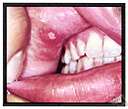etiology
Also found in: Thesaurus, Medical, Encyclopedia, Wikipedia.
e·ti·ol·o·gy
also ae·ti·ol·o·gy (ē′tē-ŏl′ə-jē)n. pl. e·ti·ol·o·gies also ae·ti·ol·o·gies
1.
a. The study of causes or origins.
b. The branch of medicine that deals with the causes or origins of disease.
2.
a. Assignment of a cause, an origin, or a reason for something.
b. The cause or origin of a disease or disorder as determined by medical diagnosis.
[Late Latin aetiologia, from Greek aitiologiā : aitiā, cause + -logiā, -logy.]
e′ti·o·log′ic (-ə-lŏj′ĭk), e′ti·o·log′i·cal adj.
e′ti·o·log′i·cal·ly adv.
e′ti·ol′o·gist n.
American Heritage® Dictionary of the English Language, Fifth Edition. Copyright © 2016 by Houghton Mifflin Harcourt Publishing Company. Published by Houghton Mifflin Harcourt Publishing Company. All rights reserved.
etiology
(ˌiːtɪˈɒlədʒɪ)n, pl -gies
a variant spelling of aetiology
etiological, etiologic adj
ˌetioˈlogically adv
ˌetiˈologist n
Collins English Dictionary – Complete and Unabridged, 12th Edition 2014 © HarperCollins Publishers 1991, 1994, 1998, 2000, 2003, 2006, 2007, 2009, 2011, 2014
e•ti•ol•o•gy
(ˌi tiˈɒl ə dʒi)n., pl. -gies.
1.
a. the study of the causes of diseases.
b. the cause or origin of a disease.
2.
a. any study of causes, causation, or causality.
b. the cause postulated for something.
[1545–55; < Latin aetiologia < Greek aitiología determining the cause of something]
e`ti•o•log′ic (-əˈlɒdʒ ɪk) e`ti•o•log′i•cal, adj.
e`ti•ol′o•gist, n.
Random House Kernerman Webster's College Dictionary, © 2010 K Dictionaries Ltd. Copyright 2005, 1997, 1991 by Random House, Inc. All rights reserved.
e·ti·ol·o·gy
(ē′tē-ŏl′ə-jē) The cause or origin of a disease.
The American Heritage® Student Science Dictionary, Second Edition. Copyright © 2014 by Houghton Mifflin Harcourt Publishing Company. Published by Houghton Mifflin Harcourt Publishing Company. All rights reserved.
etiology, aetiology
1. the branch of medical science that studies the causes of diseases and the factors underlying their spread.
2. the accumulated knowledge of disease causes. — etiologist, n. — etiologic, etiological, adj.
See also: Disease and Illness2. the accumulated knowledge of disease causes. — etiologist, n. — etiologic, etiological, adj.
the science of causation. — etiologic, aetiologic, etiological, aetiological, adj.
See also: Philosophythe science of the causes of natural phenomena. — etiologic, aetiologic, etiological, aetiological, adj.
See also: Naturethe study of the causes for and origin of any phenomena. Also spelled aetiology. — etiological, adj.
See also: Origins-Ologies & -Isms. Copyright 2008 The Gale Group, Inc. All rights reserved.
etiology
A branch of medicine that deals with the causes of diseases.
Dictionary of Unfamiliar Words by Diagram Group Copyright © 2008 by Diagram Visual Information Limited
ThesaurusAntonymsRelated WordsSynonymsLegend:
Switch to new thesaurus
| Noun | 1. |  etiology - the cause of a disease etiology - the cause of a disease cause - events that provide the generative force that is the origin of something; "they are trying to determine the cause of the crash" |
| 2. | etiology - the philosophical study of causation philosophy - the rational investigation of questions about existence and knowledge and ethics |
Based on WordNet 3.0, Farlex clipart collection. © 2003-2012 Princeton University, Farlex Inc.
Translations
Collins Spanish Dictionary - Complete and Unabridged 8th Edition 2005 © William Collins Sons & Co. Ltd. 1971, 1988 © HarperCollins Publishers 1992, 1993, 1996, 1997, 2000, 2003, 2005
Collins English/French Electronic Resource. © HarperCollins Publishers 2005
e·ti·ol·o·gy
n. etiología, rama de la medicina que estudia la causa de las enfermedades.
English-Spanish Medical Dictionary © Farlex 2012